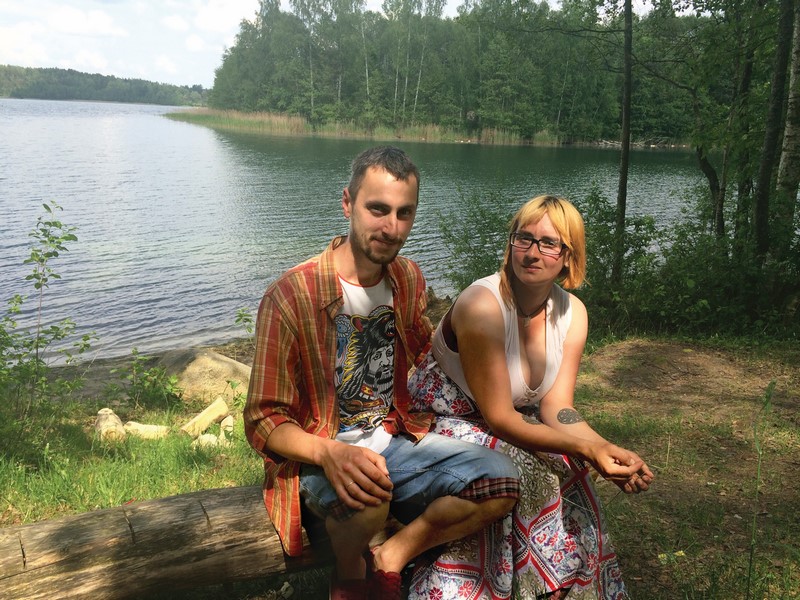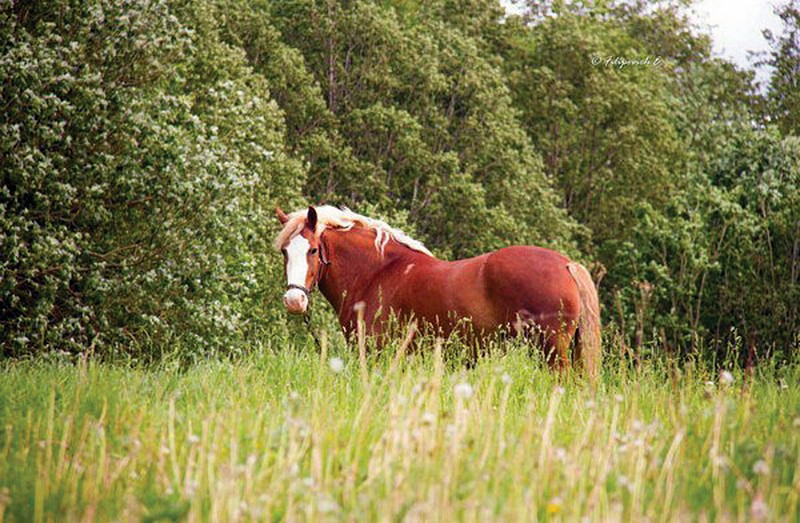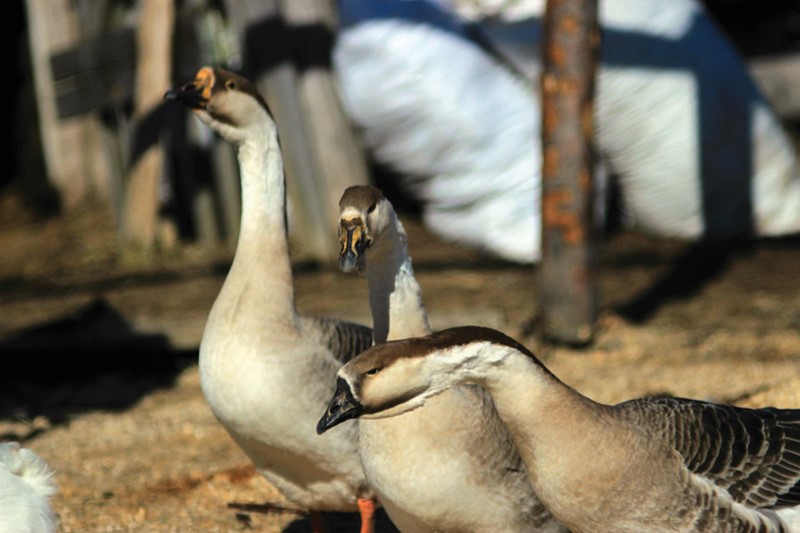
It took me three and a half hours by inter-city bus, and another hour on a local bus, plus three kilometres on foot, to reach Yana and Alexander Maslovskie, in the village of Tinovka in the Polotsk District. I realised immediately that the journey had been worthwhile. The air was full of sweet floral aromas, and my heart leapt at the beauty of the countryside. Saying this, I know that rural life isn’t for everyone.
“Our farmstead is relatively small: we keep hens, geese and goats, alongside six cats and four dogs,” says Yana, inviting me in. They also have four horses, the first being Kolos. She explains, “I was helping my friend to choose a horse and ended up buying one, too. I heard that someone was going to send an eight-month-old stallion to the meat-processing plant. He looked at me plaintively, so I didn’t think twice. I spent the money I’d saved for a seaside vacation and bought the horse.”
As a second-year student, Yana lived in the usual sort of flat, so she had to send her horse to the countryside. Her life changed in a moment: she had to wake up at 4am, go to see her horse, then go to university. She’d work afterwards, then return to see her ‘pet’ in the evening. “She’d return home at midnight, tired and happy,” Alexander recollects.

At first, he confesses, he was dumbfounded by his wife’s purchase. “Why would a city girl want a horse? Time passed, and we bought another, graceful Barkhat. Then, we acquired Rekord. I chose him, being charmed by his height,” says Alexander.
The move to the country was made quite quickly, without hesitation. Yana and Alexander settled in a picturesque, hilly area, set against the curve of beautiful Lake Beloye. “There are numerous springs,” says Yana, “And plenty of fish: crucian, tench, bream, pike, carp, perch and roach. The lake is famous for its rare vendace, which is found in only five of Belarus’ lakes.”
Living close to the water, the couple love to watch the elegant swans. Recently, they even saved one from death. “Last winter, fishermen brought us a bird with an injured wing, which would have frozen to death on the ice. We showed it to a vet and he set the wing. It lived with us for three months. As soon as the ice melted, we let it go on the water,” says Yana, watching the gorgeous swans swimming on the lake.

Far from city life, Yana recollects how difficult it was when she lived with her parents in Minsk, with the rush hour traffic jams, and the constant noise. “I used to get headaches, even though our flat was located near Loshitsky Park, in a green area. It became easier to breathe once we moved to Novopolotsk. However, this town, although small, still depressed me with its noise and fuss,” she recollects.
Her parents don’t share her passion, preferring life in the big city, with all its opportunities. Yana partly understands, saying, “We’ve had hard times, when it seemed as if living in a city might be easier. The land saved millions of people from starvation but, in our parents’ time, there were few prospects in the countryside. They all wanted to escape to urban convenience and can’t understand why we want to return to the simple life.”
It may seem strange but attitudes towards life in the countryside are changing, with ever more people wanting to move away from cities. “Famous businessman German Sterligov owned a mansion in Rublevskoye, facing the Kremlin, but relocated to an isolated farmstead without gas, electricity or paved roads, taking his wife and children with him,” comments Alexander, adding that, just because they live in the countryside, it doesn’t mean that they’re giving up on the latest technologies.

The Maslovskies have Internet access, as well as TV and mobile phone coverage, and often visit town. “I still work in Novopolotsk, but spend my earnings on the animals. A significant amount also goes on paying the utility bills, the electricity and gas. We’re gradually fine-tuning our plot and repairing the house, so I’m commuting between village and town: two days here and two days there,” says Alexander. Yana is a teacher, having studied history and English at university. In her leisure time, she likes to make leather accessories and is skilled at making items of horse tack.
Under the bright sun, we walk along the shore of Lake Beloye, meeting fellow villagers every now and then; some greet us amiably, some frown and mumble indistinctly. “Not all the neighbours understand why we’re here. They think that we don’t know how to manage a farm and some complain about the noise our animals make: the horses neighing, cocks crowing and dogs barking,” says Yana. “But this is a village! Isn’t it the most suitable place to keep birds and animals?”
The young people intend to expand their farm, adding turkeys and ponies to the ‘animal club’; they even dream of buying a reindeer. Dealing with animals, eating freshly grown vegetables and fruit, and enjoying nature — this is true happiness, the Maslovskies believe. They’re certain that they’ll never bore of village life, unlike the city.
By Yulia Popkova











